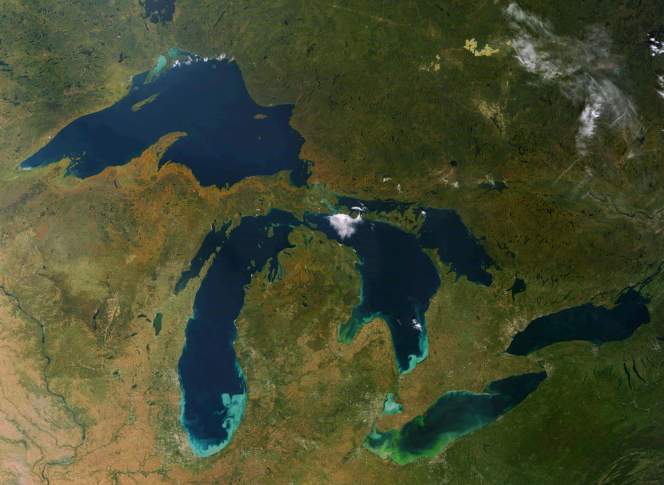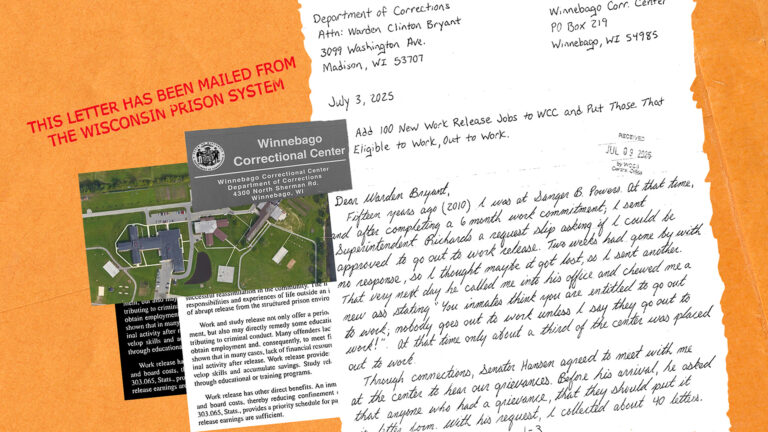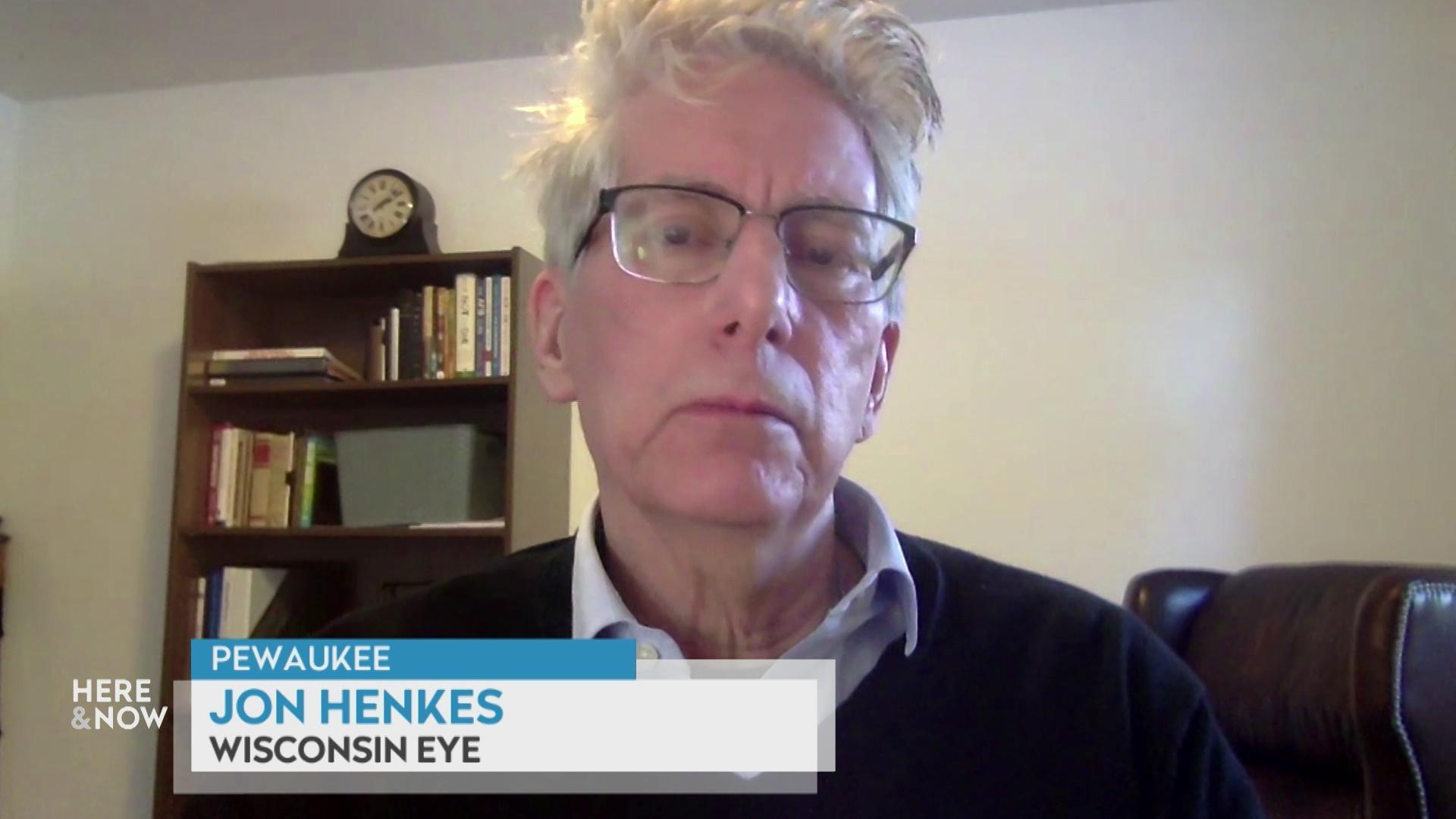Binational Commission Hears Great Lakes Protection Ideas At Milwaukee Meeting
A U.S.-Canadian panel that advises the national governments on the Great Lakes heard several ideas this week on how to better protect the waterways.
October 20, 2016

MODIS satellite image of Great Lakes in autumn

A U.S.-Canadian panel that advises the national governments on the Great Lakes heard several ideas this week on how to better protect the waterways.
The International Joint Commission is preparing a report on how well the U.S. and Canadian governments are protecting the Great Lakes under goals set out by the 2012 Great Lakes Water Quality Agreement.
Several speakers at a meeting in Milwaukee urged doing more to keep polluted urban stormwater out of the lakes.
Ezra Meyer of the groups Clean Wisconsin and the Sweetwater Trust said he’d like to see more financial incentives for green infrastructure.
“So that it was more than the sort of narrow, limited set of places we could get funding from,” he said. “So we had incentives to help pull, push, drive, cajole people to do this at scale.”
Other ideas include getting more landowners, especially farmers, involved in talks about how to reduce phosphorus pollution in the lakes.
Lana Pollack, chair of the U.S. section of the commission, said the record appears to be mixed.
“Depends on where you are. If you look up in Green Bay for instance, they are plagued with some of the algal blooms they haven’t seen in many years,” Pollack said. “The algal blooms — the interface between farming, agriculture and the water — that’s a major issue.”
Pollack also says climate change will be a challenge.
“It means stronger storm events that wash things off the ground faster, stress our infrastructure that isn’t really built for these rainstorms of this magnitude.”
Some environmental advocates at the session pushed the commission for a plan to better address climate change, which scientists say will also decrease ice on the lakes and increase evaporation.
Jane Elder of the Wisconsin Academy of Sciences, Arts and Letters is already an adviser to the IJC. She told commissioners that, by and large, governments are unprepared.
“There is no game plan for climate change resilience or freshwater ecosystems,” Elder said. “Either in Wisconsin or binationally for the Great Lakes Basin. I serve on the Water Quality Board and my working group has worked intensely to recommend to the commission and we hope you’ll recommend to the parties that we need a binational resilient strategy.”
The International Joint Commission will issue its recommendations next year.
 Passport
Passport











Follow Us